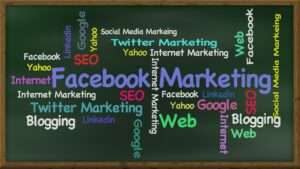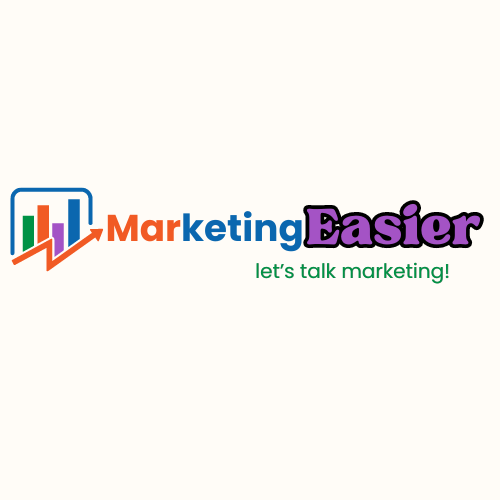
Online marketing is an important and powerful tool for businesses to reach their target audience and increase their sales. By implementing the right strategies and using the right tools, companies can effectively maximize their reach and profitability.
Table of Contents
ToggleIn today’s digital age, having a strong online presence is not an option, it’s a necessity for businesses of all sizes. With the vast majority of consumers rely on the Internet to research products or services.
If you want to stay ahead of the game, you need to have a strong online presence that attracts your target audience. This means that you need to have a rock-solid online marketing strategy in place.
In this article, you’ll learn about online marketing, its importance and benefits, key components of online marketing and how you can craft a winning online marketing strategy.
What is Online Marketing?
Online marketing, sometimes referred to as digital marketing or Internet marketing, is the practice of advertising goods and services via a variety of online platforms. This can include social media, SEO, email marketing, and more.
Importance of Online Marketing?
The significance of internet marketing in the modern, globally interconnected world cannot be emphasized.
Businesses have an excellent opportunity to directly engage their target audience because billions of people spend a large portion of their daily lives online.
Online marketing makes use of social media sites like Facebook, Instagram, and Twitter, which enable precision targeting based on customer behavior, demographics, and interests.
This is in contrast to traditional types of advertising, which depend on mass broadcasting techniques, such as TV or print commercials.
Evolution of Online Marketing
As we discussed earlier, online marketing, also known as digital marketing, is the use of the internet and other digital channels to promote products and services to consumers and businesses.
Online marketing has evolved significantly since its inception in the 1990s, when the first web browsers, search engines, and e-commerce sites emerged.
In today’s competitive market, the survival of a company relies heavily on its capability to keep up with the ever-evolving landscape of online marketing.
Since then, online marketing has expanded to include various strategies such as email marketing, SEO, SEM, content marketing, social media marketing, and more.
Technology advancements like big data, analytics, artificial intelligence (AI), chatbots, and voice search have also helped online marketers reach a wider and more interested audience.
For example, have you ever experienced the magic of Amazon’s personalized recommendations? They seem to know exactly what you need and want, making your shopping experience so much more enjoyable and efficient!
Advantages of Online Marketing
- Global reach: Online marketing allows businesses to reach a global audience, making it a powerful tool for businesses of all sizes. Even a small local business can have an online store that can attract customers from different countries.
- Cost-effective: No doubt, online marketing is more cost-effective and efficient compared to print or other mediums. It is highly targeted, reaching only the most relevant audiences, and thus offering a strong return on investment.
- Fast: Online marketing enables businesses to communicate with their audience in real-time and get immediate feedback. Customers can also act on the online messages right away, giving businesses a quick turnaround on their investment
- Trackable: Online marketing makes it easy to measure the performance and impact of the marketing campaigns. Businesses can use analytics tools to track the number of clicks, opens, shares, conversions, and other metrics.
- Targeted: Online marketing allows businesses to segment and personalize their messages based on various criteria, such as location, interests, behavior, and preferences. This helps businesses to deliver more relevant and engaging content to their audience.
- Future-oriented: Online marketing is constantly evolving with the advances in technology, such as AI, chatbots, and voice search.
These trends offer new opportunities and challenges for businesses to stay ahead of the competition and meet the changing needs and expectations of the customers.
Key Components Online Marketing

When it comes to online marketing, several key components work together to maximize your reach and drive results. Let’s explore these essential elements:
- Search Engine Optimization: SEO is the process of improving the visibility and ranking of a website on search engines like Google and Bing.
It involves optimizing the website’s content, structure, and technical aspects to match the search intent and preferences of the target audience.
- Content Marketing: The process of creating and distributing useful, pertinent, and consistent content for a target audience is known as content marketing.
Different media, including blog entries, podcasts, videos, ebooks, and more, are possible for the content
Attracting, involving, and keeping customers through the provision of helpful information and solutions is the aim of content marketing.
- Social Media Marketing: Using social media to communicate with and influence both current and new customers is a very effective marketing strategy.
Brands may express their distinct personality, values, and products through the creation and dissemination of engaging content on various social media platforms, including Facebook, Instagram, Twitter, and others.
- Email Marketing: One effective way to increase customer trust, loyalty, and conversions is through email marketing.
By sending segmented lists of subscribers with relevant and personalized messages like newsletters, promotions, and updates, you can efficiently interact with and convince customers.
- Pay-Per-Click (PPC) Advertising: In pay-per-click (PPC) advertising, the advertiser is charged a fee each time a user clicks on their advertisement.
Search engines, social media platforms, and other websites that are pertinent to the advertiser’s product or service are typically where advertisements appear.
- Campaign Analytics & Tracking: Make sure you are aware of the effectiveness of your campaigns by utilizing tracking and analytics solutions.
With the use of technologies like Google Analytics and social media insights, you can enhance your online marketing approach and make well-informed decisions with the help of this data.
By monitoring metrics such as click-through rates, conversion rates,and bounce rates, you can make data-driven decisions for continual improvement.
To achieve success in today’s digital landscape, a comprehensive online marketing strategy that includes all essential components is an absolute must. You cannot afford to overlook the importance of each element and must skillfully combine them to maximize your reach and establish brand awareness.
How to Maximize Your Reach with Online Marketing?
Online marketing is the most effective way to reach a massive audience, and with billions of internet users worldwide, your target market is few clicks away.
But how can you make sure that your message reaches the right people? Here are some strategies to help you maximize your reach and ensure that your message is seen by your intended audience.
- Target Audience: To achieve marketing success, you must have a deep understanding of your target audience. You need to know who they are, what they like and where they spend their time online?
This knowledge will enable you to tailor your marketing efforts according to their demographics, interests, and behavior patterns, and ultimately drive more conversions.
- Create Quality Content: After you know your target audience, next step is to create top-notch content that strikes a chord with your target audience.
This can be in the form of informative blog posts, engaging videos, or any other content that your audience finds valuable. By doing so, not only will you attract more visitors, but you’ll also establish credibility and trust with potential customers.
So, make sure you put your best foot forward and create content that leaves a lasting impression on your audience!
Utilize social media platforms to promote your content and engage with followers. Platforms like Facebook, Instagram, Twitter, and LinkedIn offer great opportunities for reaching a wider audience through targeted advertising campaigns and organic engagement.
- Push content through employee networks: Your employees can be your best advocates and promoters. Encourage them to share your content with their networks, and provide them with incentives and guidelines. This can help you increase your brand awareness and credibility.
- Search engine optimization (SEO): If you want to drive more organic traffic to your website, optimizing it for relevant keywords is a must. By doing so, you can significantly improve its visibility in search engine results pages (SERPs).
- Collaborating with influencers: individuals in your niche is an incredibly effective way to increase brand awareness, and expose your products to a larger audience base.
By leveraging the power of these niche influencers, you can significantly enhance your brand’s visibility and reach, driving more traffic, leads, and sales to your business.
- Track and analyze data regularly: it is imperative that you consistently track and analyze data to accurately measure the effectiveness of various marketing channels and tactics. This analysis will equip you with the information you need to make informed decisions about resource allocation.
By following these steps, you’ll be able to maximize your reach and connect with potential customers across various digital channels. Online marketing is a powerful tool that can help you achieve your business goals. Use it wisely and effectively.
Crafting a Winning Online Marketing Strategy
Now that you understand the power and potential of online marketing, it’s time to put that knowledge into action. You need a clear and effective strategy that matches your goals and audience. Here’s how you can create one:
- Define Your Goals: To maximize the effectiveness of your online marketing efforts, set SMART goals that are specific, measurable, achievable, relevant, and time-bound. Stay determined in your pursuit of achieving these goals, and regularly track your progress to ensure success.
What do you want to accomplish? Whether it’s increasing brand awareness, driving more traffic, generating leads, or boosting sales, having clear goals will help you focus your strategy and measure your progress.
Know Your Target Audience: If you want to make the most out of your online marketing campaigns, it’s important to know your audience. Conduct thorough research and really get to know your ideal customers What are their needs, wants, and interests? What do they like and dislike?
By understanding their online behaviors and creating detailed buyer personas, you can tailor your marketing campaigns to effectively appeal to and engage with your target audience
Choose the Right Channels: You need to select the online channels that best suit your goals and audience. There are many options to choose from, such as SEO, social media advertising, email marketing, content, or influencer marketing. Pick the channels where your audience is most active and where you can reach them effectively.
- Create Compelling Content: “Content is king“. Content is the core of your online marketing strategy. It’s how you communicate your value proposition, educate your audience, and persuade them to buy or service.
Create high-quality content that is relevant, useful, and entertaining for your audience. You can use different formats, such as blog posts, videos, infographics, podcasts etc. to cater to different tastes and platforms. Make your content shareable, interactive, and valuable for your audience.
- Optimize for Search Engines: SEO is essential for increasing your organic visibility and traffic. Search engines like Google use algorithms to rank websites based on various factors, such as relevance, quality, and user experience.
To optimize your website and content for search engines, use relevant keywords, meta tags, titles, headings, images, alt tags, etc. Keep up with SEO trends, audit your website, perform keyword research, analyze your competitors, build quality backlinks, improve your site speed, and be mobile-friendly.
Measure Results & Refine Strategy: Online marketing is measurable, so you can track and analyze how well your campaigns are performing and how effective they are
To collect and interpret data, use tools such as Google Analytics, email marketing software, social media analytics, etc. You can improve your strategy over time if you see which tactics are working well and which need improvement.
- Stay Up-to-Date with Trends & Innovations: The online marketing industry is constantly evolving, so you must stay on top of trends and innovations. Stay on top of your game by watching what your competitors are doing, following industry experts, attending conferences, and experimenting with new techniques.
You can create a winning online marketing strategy by following these steps and continuously adapting it based on your goals, target audience, and data-driven insights.
You can create a winning online marketing strategy by following these steps and continuously adapting it based on your goals, target audience, and data-driven insights.
Conclusion
Online marketing is a powerful way to reach and engage potential customers. Marketers need to create and optimize content that matches their audience’s needs, wants and interests, use effective keywords, SEO, social media, email marketing, and paid ads to drive traffic, and have clear and compelling calls to action, landing pages, forms, and offers that provide value and solve their problems.
Produce high-quality content that showcases their expertise and value proposition, use social proof and testimonials, be transparent about data collection and protection, and comply with privacy regulations. They need to be creative and innovative in their content creation and delivery, monitor the latest trends and technologies that affect online marketing, and be flexible and willing to experiment.
With constantly evolving technology and consumer behavior, marketers must stay up-to-date with online marketing strategies to stay competitive. So why wait? Start implementing these tips today and watch your business thrive in the online world!
FAQs
Online marketing can be divided into several types, depending on the goals, methods, and platforms used. Some of the most common types of digital marketing are content marketing, SEO, social media marketing, and PPC.
Online marketing can help businesses reach and engage a large and diverse audience, generate more leads and sales, increase brand awareness and loyalty, measure and optimize their performance, and achieve their business goals.
Online marketing is the process of using the internet and digital technologies to promote and sell products or services to potential and existing customers. Online marketing can include various strategies and channels, such as websites, SEO, social media, email marketing, content marketing, video marketing, online advertising.
Top benefits of digital marketing are:
- Global reach
- Cost-effectiveness
- Brand awareness
- Engagement
- Measurement
- Targeting
- Flexibility
- Competitiveness
- Growth
Online marketing is used for promoting a business, product, service, or idea online, using various channels and strategies to reach and influence potential and existing customers.
Online marketing has some drawbacks, such as information overload, time consumption, security issues, reliance on technology, and competition. These challenges may affect the effectiveness and efficiency of online marketing campaigns, as well as the trust and satisfaction of customers.
Online marketing is the process of promoting a business, product, service, or idea online, using various channels and strategies to reach and influence potential and existing customers. It involves defining your target audience, building your online presence, creating and distributing valuable content, leveraging online marketing channels, and measuring and optimizing your online marketing performance.
To start online marketing, you need to set your goals and budget, know your audience and competitors, create or update your website and blog, choose your online marketing channels, create and distribute valuable content, and measure and optimize your online marketing performance.
Marketing helps businesses increase sales, build brand awareness, and engage with customers. It allows for targeted communication and helps in understanding customer needs better.
It increases brand visibility, facilitates customer engagement, and provides valuable customer insights.
Online marketing is used for promoting a business, product, service, or idea online, using various channels and strategies to reach and influence potential and existing customers.
Maximize online reach by optimizing your website (SEO), using social media, creating relevant content, engaging in email marketing, and utilizing paid advertising.


